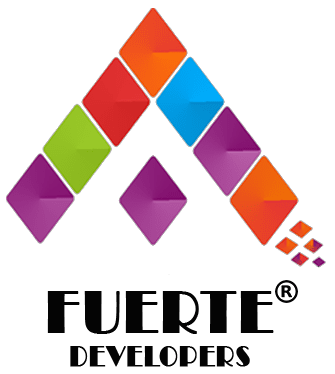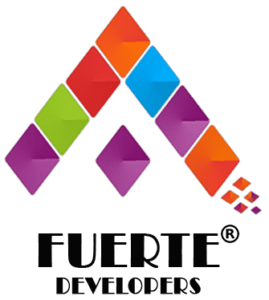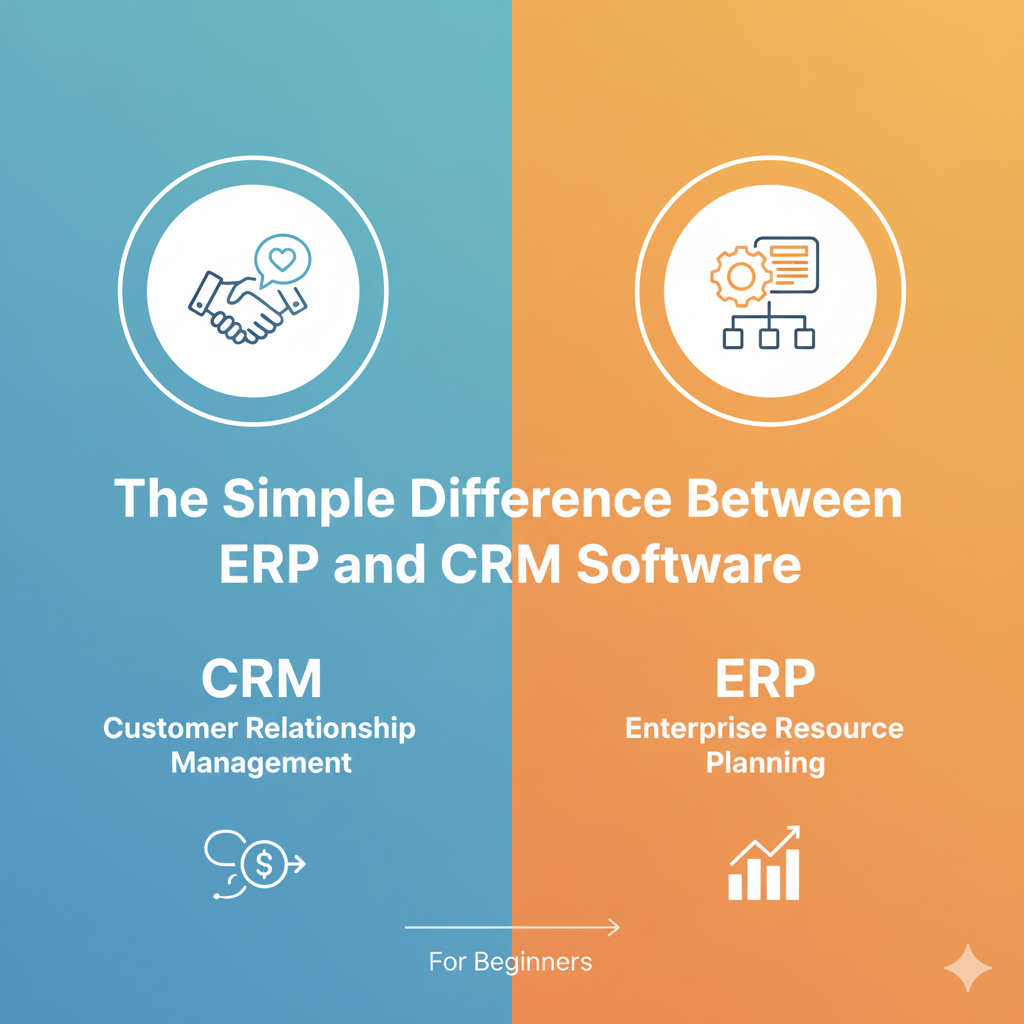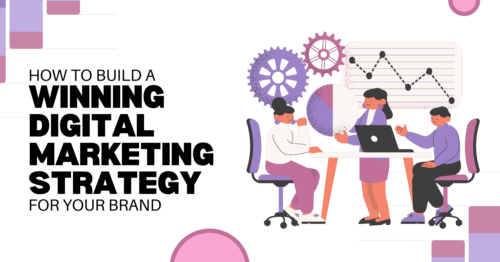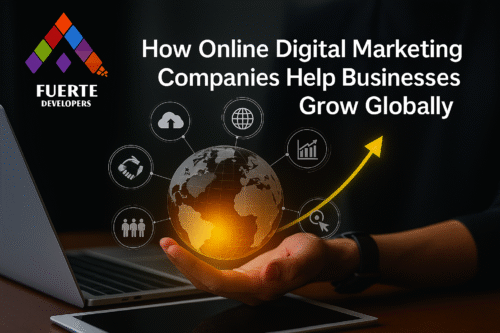If you’re launching a business, you’ve probably encountered the acronyms ERP and CRM. They sound similar, both involve managing data, and both are essential.1 But they perform fundamentally different jobs within your company.
The simplest way to think about it is this:
- CRM (Customer Relationship Management) focuses on the front office—everything related to the customer.2
- ERP (Enterprise Resource Planning) focuses on the back office—everything needed to run the company internally.
1. 🤝 CRM: Focusing on the Customer (The Front Office)
CRM software is all about sales, marketing, and service.3 Its primary goal is to improve profitability by managing all customer interactions and optimizing the sales pipeline.
What CRM Does
CRM is the central hub for all data related to potential and current customers.4
| CRM Function | What it Manages | Why it Matters |
| Sales | Leads, opportunities, sales forecasts, and tracking communications. | Helps sales teams close deals faster and prioritize high-value leads. |
| Marketing | Running campaigns, managing email lists, and tracking conversion rates. | Enables targeted communication and personalized customer journeys. |
| Service | Tracking support tickets, managing call histories, and maintaining a customer knowledge base. | Improves customer retention by ensuring fast and consistent service.5 |
The CRM Goal: Revenue and Relationships
A CRM tracks the entire Customer Journey, from the moment someone first shows interest (a lead) until they become a loyal, repeat buyer.6 If a customer is involved, the CRM is tracking it.
2. ⚙️ ERP: Focusing on the Business (The Back Office)
ERP software is a comprehensive, integrated system designed to manage and automate all the core business processes necessary to operate a company.7 Its primary goal is to improve efficiency and reduce costs by optimizing internal resources.8
What ERP Does
An ERP system touches nearly every internal function, ensuring data flows smoothly between departments like accounting, manufacturing, and inventory.
| ERP Function | What it Manages | Why it Matters |
| Finance & Accounting | General ledger, accounts payable/receivable, payroll, and financial reporting. | Ensures financial compliance and accurate budget tracking. |
| Supply Chain | Inventory, warehousing, logistics, and vendor management. | Prevents stockouts, reduces warehousing costs, and optimizes delivery. |
| Manufacturing/Operations | Production planning, bill of materials, quality control, and scheduling. | Improves production efficiency and reduces waste.9 |
| Human Resources (HR)10 | Employee data, benefits, and time tracking.11 | Manages internal employee resources effectively. |
The ERP Goal: Efficiency and Optimization
An ERP tracks the flow of materials, money, and data within the company. If it’s a process related to fulfilling an order or running the business financially, the ERP is tracking it.
3. 🧩 The Simple Difference: Who Is the User?
| Feature | CRM (Customer Relationship Management) | ERP (Enterprise Resource Planning) |
| Primary Focus | The External Customer | The Internal Business Processes |
| Main Goal | Increase Revenue and Sales | Increase Efficiency and Reduce Costs |
| Primary Users | Sales Reps, Marketing Teams, Customer Service Agents | Accountants, Production Managers, Warehouse Staff, HR |
| Data Scope | Customer Contact, Deals, Interaction History | Inventory, Financial Ledgers, Production Data, Vendor Bills |
How They Work Together (The Ideal Scenario)
In a modern business, ERP and CRM systems are often integrated to share critical data:12
- A Sales Rep closes a deal in the CRM.13
- The CRM automatically sends the new customer order details to the ERP.14
- The ERP takes over: it checks inventory, schedules production, creates the invoice, and updates the general ledger.
This integration ensures the sales team knows the company’s capacity, and the operations team knows exactly what needs to be fulfilled for the customer.15
Conclusion: Which One Do You Need First?
For most startups:
- If your priority is getting your first customers, managing leads, and closing deals, you need a CRM first.
- If your priority is managing complex inventory, manufacturing, or large-scale financial reporting, you need an ERP first.
Ultimately, successful, growing businesses need both to manage the relationships outside and the efficiency inside.
